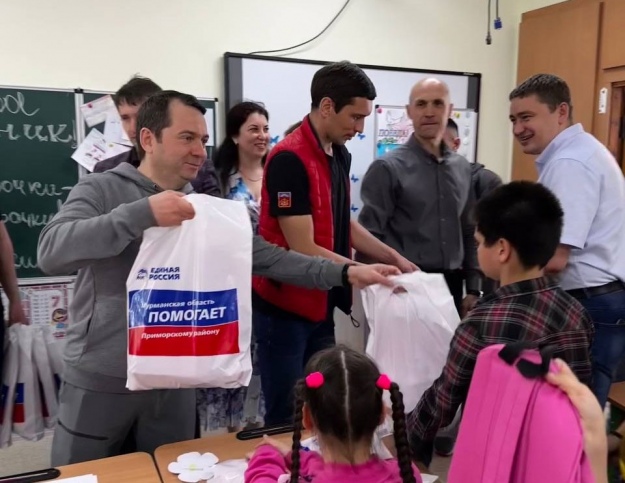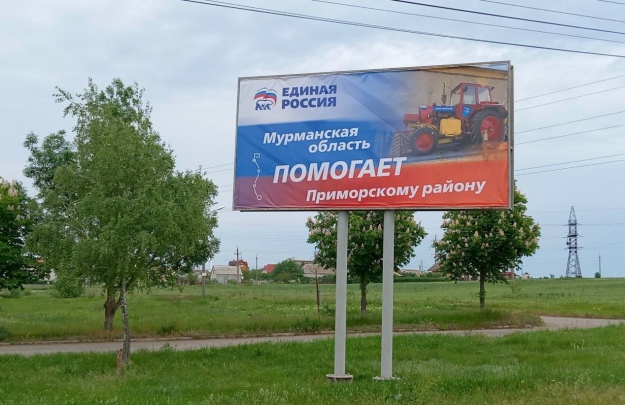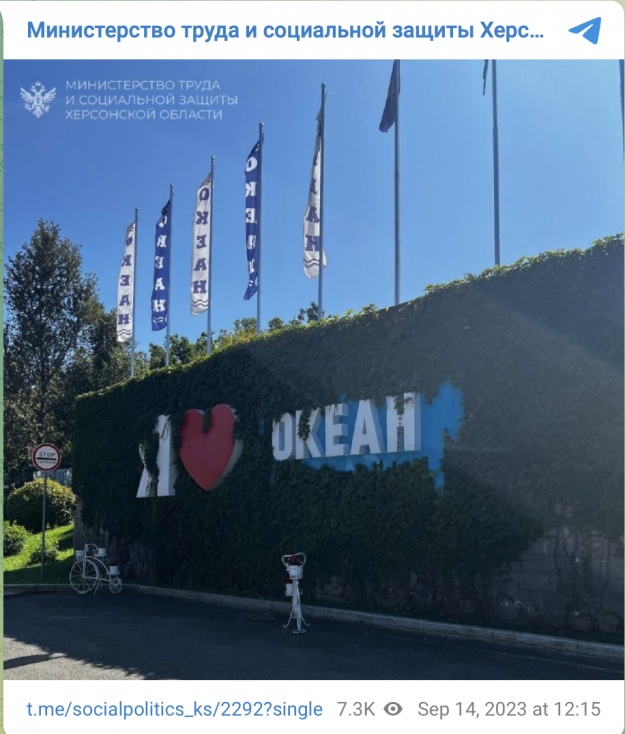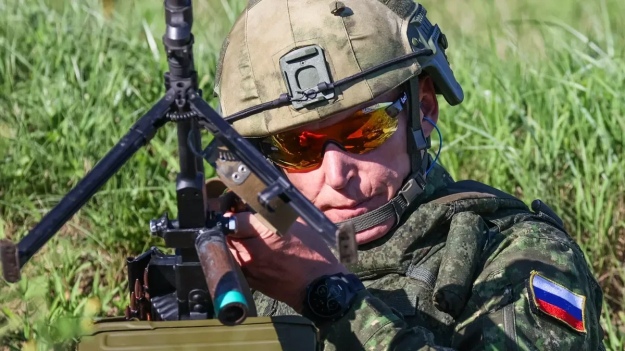Russia allocated 420,000 euros for Maria Lvova-Belova: additional state budget allocated for the forced retention of Ukrainians
The article analyzes the involvement of high-ranking Russian officials in the funding of war crimes, namely, the processes of mass deportation of Ukrainian children to the territory of the Russian Federation, their further detention on the territory of the aggressor country, as well as the assistance of Russian governors in the allocation of funds from the budgets of their regions, to conduct the forced Russification and militarization of deported Ukrainian children.
Following the full-scale invasion of Ukraine, the Russian-installed occupation authorities have been systematically deporting the Ukrainian population of the seized territories to the Russian Federation. The war crimes of forced removal equally target adults and children. According to the U.N. estimates, more than 2.8 million Ukrainians were deported to the territory of the Russian Federation, several hundred thousand of which are children. In one of the interviews, the Commissioner of the President of Ukraine for Children's Rights and Child Rehabilitation, Darya Gerasymchuk, emphasized that the number of deported Ukrainian children may reach 200-300 thousand people. At the same time, the "Children of War" website identified 19,546 children, only 388 of whom were returned.
As a vulnerable group of the population, children make up one of the critical targets for deportation, owing to their vulnerability to "re-education," as well as propaganda and disinformation. For many abducted Ukrainian children, deportation to the territory of the Russian Federation was followed by forcible adoption into Russian families and acquiring Russian citizenship, despite having parents or legal guardians, making their repatriation from Russia even more complicated. Meanwhile, Ukrainian children who are forced to stay in Russian territory are subject to militarization and Russification, which aim to destroy their Ukrainian identity - this deliberate policy that Russian authorities have pursued throughout a decade of military aggression against Ukraine and two years of genocidal full-scale invasion.
The Russian authorities perpetuate various ways of retaining deported Ukrainian citizens in the Russian territory, paying particular attention to this of children. In order to settle deportees, Russia systematically develops and finances the network of so-called "temporary accommodation points" designed for accommodating deportees. A report by the Yale Humanities Research Laboratory identifies 43 locations used for the retention of Ukrainian children, while at least 32 institutions are supposedly involved in their systematic re-education. This process displays a clear orientation towards Russian-centric education and the elements of militarization of the educational process. This involves the active engagement of Russian paramilitary organizations for youth, namely "Youth Army," "Movement of the First," and "Young Guard."
The research by the "Where are our people?" project reveals the vast re-education network created on the basis of summer camps, hostels, orphanages, and even monasteries of the Russian Orthodox Church. Distinguished by extensive geography, the facilities system extends from the Russian regions bordering Ukraine (Rostov, Bilhorod, Kursk regions) to Siberia and the Russian Far East.
High-profile Russian politicians are actively involved in the retention and resettlement of Ukrainian children from the occupied territories throughout the Russian Federation. Notably, the list of engaged authorities includes the Presidential Commissioner for Children's Rights Maria Lvova-Belova, for whose unlawful activities the Russian government has allocated 420,000 euros from the 2024 federal budget, and regional governors like the Governor of the Moscow region, Andrey Vorobyov, known for deporting a family from the occupied Donetsk region to the Moscow region.
The efforts of high-ranking Russian officials facilitate organizing tenders covering the retention of Ukrainian children on the territory of the Russian Federation. Specific instances of Russian officials assuming control over occupied territories are known. For example, the Governor of the Murmansk region, Andrey Chibis, has taken charge of the occupied Primorsky district of the Zaporizhzhya region.

The Russian Governor has repeatedly arrived in the occupied Zaporizhzhya region, visited children in educational institutions and congratulated them with "the incorporation of part of the region into the Russian Federation, inviting them to visit the Murmansk Oblast". The outcomes of Chibis's visits to this Russian-occupied part of Ukraine are deeply concerning; directly involved in the illegal deportation of Ukrainian children, the Governor of Murmansk was subject to international sanctions. For instance, in September 2022, Andrey Chibis arrived at the Murmansk airport to welcome 11 deported children from Ukraine. In the summer of 2023, Andrey Chibis allocated funds from the budget of the Murmansk region to cover the de-facto deportation of Ukrainian children from the occupied Zaporizhzhya region to summer camps in the Krasnodar region of Russia. At the same time, before dispatching to summer camps in Russia, the children were collected by the Minister of Education of the Murmansk region, Diana Kuznetsova, who visited preschools, schools, and colleges in Primorsk, as well as in occupied Mariupol, Berdyansk, and surrounding villages.

It should be noted that the Russian authorities have additionally started funding the training of new "officials'' in the occupied territories of Ukraine. A document issued in January 2023 mentions the allocation of 6.6 billion rubles (57 million pounds sterling) for a range of projects in the occupied territories related to the training of new government officials, development of "educational programs among youth," and deployment of infrastructure for the Russian internet censor, which blocks "undesirable" websites. This process goes hand in hand with expanding the capabilities of several new propaganda media resources in the occupied Zaporizhzhya region, including websites, Telegram channels, and state-funded influencers. An investigation by The Guardian found that the Kremlin allocated 144 million rubles (1.2 million pounds) to the region for 2023 and proposed to double this figure in 2024.
It is worth noting that the Murmansk Oblast is not the only remote region of Russia where deported Ukrainian children are being found. Since 2014, Putin's regime has been practicing forced relocation of Ukrainians to the Russian Far East, including the Primorsky Krai. According to Russian sources’ data, as early as the fall of 2014, the region already contained 53 so-called "temporary accommodation points" that hosted 1,500 Ukrainians, including children. The available information about living conditions in such "points," such as the Lipovtsy settlement in the Oktyabrsky district, reveals that Ukrainians lived without proper food and in the cold of the harsh region.
The deliberate policy of displacing Ukrainians, perpetuated by the Russian government, is closely related to the demographic crisis in remote regions of Russia. Yuri Avdeev, the candidate of economic sciences, the director of the Asian-Pacific Institute of Migration Processes, and a leading research fellow at the Pacific Institute of Geography of the Russian Academy of Sciences directly points out at the resettlement of Ukrainians in these regions as a "solution" to the acute shortage of local population.
The deportations of Ukrainian children to Russia have significantly intensified after the outbreak of the full-scale Russian invasion of Ukraine on 24 February 2022. The official Telegram channel of the occupational "Ministry of Labor and Social Protection" in the Russia-occupied part of the Kherson region covered negotiations between a delegation of this "ministry" and the management of the "Ocean" children's summer camp in the Primorye. The meeting was dedicated to the issue of allocating funds from the local budget of the Russian-occupied Kherson region to fund 'rehabilitation' trips for Ukrainian children in the mentioned camp, located on the coast of the Sea of Japan, thousands of kilometers away from Ukraine. The significant distance between places of retention from Ukraine poses a substantial obstacle for returning deported Ukrainian children to their homeland.

According to Russian sources, since April 2022, the Primorsky Krai has become one of the "leaders" in the Russian Far East region in terms of "reception" and "adaptation" programs for Ukrainian deported children. Therefore, the regional leadership actively "facilitates" the arrival of children from the occupied territories of Donetsk and Luhansk regions, annexed by Russia.
The Governor of the Primorsky Krai, Oleg Kozhemyako, who actively supports Russia's full-scale invasion of Ukraine, allocates funds from the regional budget to arrange accommodation for Russian orphaned children who are now adults and are fighting in the Russian army in Ukraine, as well as for children who have lost parents serving in the Russian occupying army in the war against Ukraine. The Telegram channel of the head of the legislative assembly of the Primorsky Krai, Alexander Rolik, mentions a bill providing funding for housing for "participants of special operations" who had orphan status and were involved in combat against Ukraine. Specifically, it contains information about the purchase of residential premises from a developer of a multi-apartment building in the villages of Yakovlevka and Mikhaylovka in the Primorsky Krai.

Based on the facts provided, we can conclude that the financing of the deportation of Ukrainian children, as well as their subsequent Russification and militarization, is a consistent criminal policy of the Russian government aimed at eradicating Ukrainian identity in deported children and "solving" the demographic crisis in remote regions of Russia.
At the same time, Russian officials are financing vulnerable categories of their population, manipulating housing "preferences" for economically disadvantaged citizens and individuals who have orphan status, and cynically using them as a mobilization resource in the criminal war against Ukraine. These processes demonstrate that unpunished evil will persist and grow if not stopped. Therefore, the international community urgently needs to intensify the pressure of sanctions on Russia and hold the aforementioned officials accountable.
Vladyslav Havrylov, Researcher at "Where are our people?" public organization, invited researcher at the Collaboration on Global Children's Issues at Georgetown University (USA).
